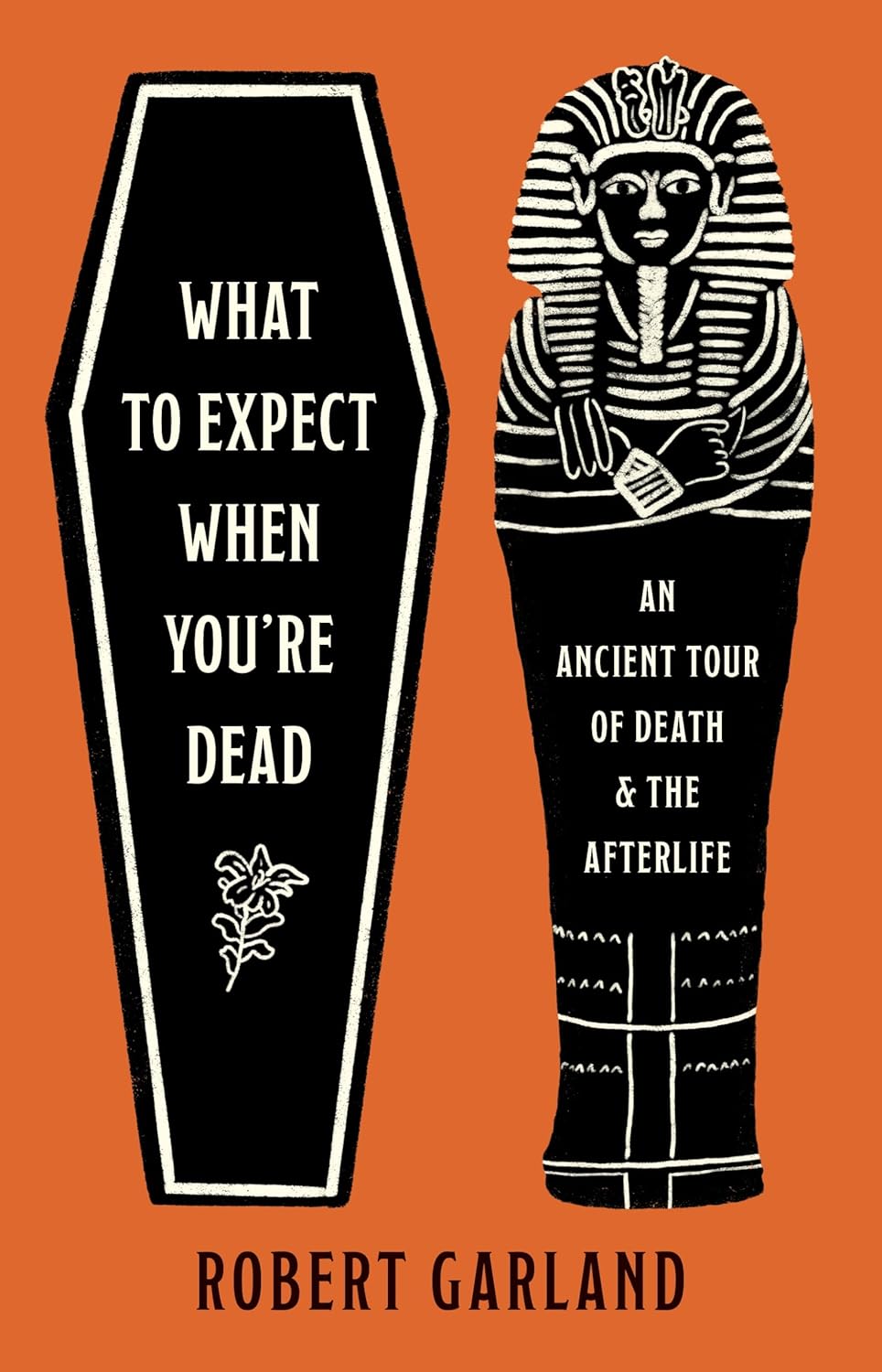
What to Expect When You're Dead: An Ancient Tour of Death and the Afterlife
死後你會去哪?古文明的死亡觀與來世信仰
內容介紹
一本兼具娛樂性與啟發性的作品,探討古代人如何面對死亡——以及我們能從中學到什麼。
《死後你會去哪?古文明的死亡觀與來世信仰》以生動有趣的筆調,引領讀者穿梭於多種古代文化與傳統中,探索與死亡相關的信仰與實踐,包括:美索不達米亞、埃及、印度教、猶太教、祆教、伊特拉斯坎、希臘、羅馬、早期基督教與伊斯蘭教等文明。羅伯特.嘉蘭(Robert Garland)結合最新的古代考古、藝術、文學與墓誌研究,邀請讀者穿上古人的涼鞋,從第一人稱視角一步步感受他們如何陪伴死者踏上前往來世的旅程,以及他們如何努力理解生命中最深奧的謎題——這一切,其實與我們現代人的想法出奇地相似。
本書詳實記錄了古代人如何回答下列問題:
如何才能善終,並進入美好的來世?
遺體該如何妥善處理?
死者會面對審判嗎?他們最終會去哪裡?
在來世中,亡者是否仍有形體?他們能吃、能喝,甚至能行房嗎?
活人又該如何與亡者維持良好關係?
《死後你會去哪?古文明的死亡觀與來世信仰》充滿引人入勝的故事與不時穿插的幽默,是一本讓活著的你也欲罷不能的「死亡饗宴」。
導言
第一章 人類如何開始相信死後世界
第二章 如何善終
第三章 兩個世界之間
第四章 死後審判
第五章 天堂與地獄
第六章 死後要做的事
第七章 如何處理遺體
第八章 遺體安置何處
第九章 與亡者共處
第十章 如果……?
相關影片
作者介紹

羅伯特.嘉蘭(Robert Garland)是科爾蓋特大學(Colgate University)榮退的古典學羅伊.D.與瑪格麗特.B.伍斯特講座教授(Roy D. and Margaret B. Wooster Professor Emeritus of the Classics)。他著有多部著作,包括《希臘人的死亡之道》(The Greek Way of Death)、《漂泊的希臘人》(Wandering Greeks,普林斯頓大學出版社)與《燃燒的雅典》(Athens Burning)。他也為「The Great Courses」錄製過六門課程,最新的是《神對抗諸神》(God against the Gods)。
書評
What to Expect When You’re Dead is a remarkable book, as broad as it is deep. Garland’s urbane, witty style makes his grand synthesis of ancient approaches to death eminently instructive for scholars and compellingly entertaining for the general reader. To say this book is well written is an understatement. I can’t imagine a single person who would not learn from it.”—Jennifer T. Roberts, author of Out of One, Many: Ancient Greek Ways of Thought and Culture
“Vital and vivacious, Garland’s sometimes sobering, sometimes irreverent, but always informative overview takes readers on an awfully big adventure. Bringing to life 100,000 years of human responses to death, this book poses timeless questions about the greatest known unknown of all.”—David Stuttard, author of A History of Ancient Greece in 50 Lives
“Robert Garland is, in the nicest possible way, an expert on death, especially on ancient Greek ways of death. Here he turns that expertise to splendid account, ranging informatively, illuminatingly, and provocatively across death culture in not only Greece but also Etruria, Egypt, Rome—and even our own contemporary world.”—Paul Cartledge, author of Thebes: The Forgotten City of Ancient Greece
